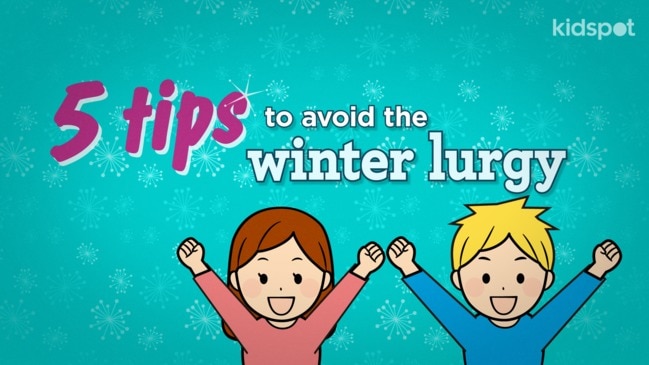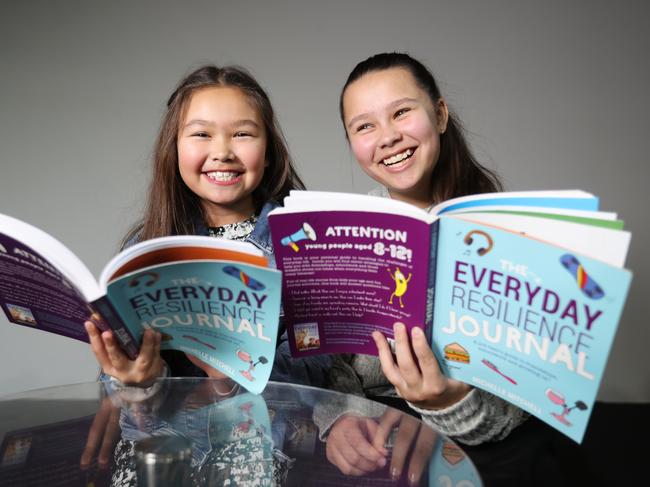Writing down worries is the key for kids anxious about COVID
Aussie kids are losing sleep with adult-sized worries that keep them awake at night, but an age-old method is helping them deal with their anxieties.

Hibernation
Don't miss out on the headlines from Hibernation. Followed categories will be added to My News.
- Generation Anxious: What is worrying the kids of today
- New programs designed to help anxious school students
Children are losing sleep with adult-sized worries that keep them awake at night as the rise of anxiety among our school students increasingly becoming a problem for parents and teachers.
But some schools are finding an old fashioned method - journaling - is helping students deal with modern day pressures.
Anxiety is an epidemic running through our schools with crammed schedules and over protectiveness parents driving a generation of anxious children according to recent research.
In fact, The Australian Primary Principals Association (APPA) were so concerned about rising levels of anxiety they recently commissioned a report which found 90 per cent of principals said anxiety in students was placing major time and resources on schools and 60 per cent said they had insufficient resources to deal with the issue.
Psychologist and expert in child behaviour Michael Hawton, who was invited by the APPA to help unpack the report, said he was concerned about childhood anxiety and parents’ ability to manage it, given their own anxiousness.

“Parents around Australia are dealing with a changed world around them, having faced lockdown, separation from loved ones, working from home, loss of employment, all with the added health risk of the virus, there is a lot happening in their world.”
“In the midst of this anxiety, parents are having to manage the stress and anxiety that their own children are facing about the change to their world.”
The APPA study found a number of factors contributed to anxiety in children including late nights, custody issues, technology and stressed and anxious parents and Malcolm Elliott, President of the APPA, said the findings reinforced that anxiety is a growing issue.
“In the wake of the coronavirus rates of anxiety are escalating in the community, this is off the back of already record rates and sits today as the most common mental health issue in the nation, with our children not immune from its impact.”
“So prevalent has the issue become that school leaders have noted it as a growing issue of concern within the primary school system, with schools and parents in need of support in how they address the issue with children.
“Schools and parents are struggling with the strain, our job at the Australian Primary Principals Association is to highlight the issue and work with school leaders, the government and parents to put into place practical solutions that ultimately lead to healthier and happier children,” said Mr Elliott.

One of the way many schools are dealing with anxious children is the age-old technique of ‘journaling’ which became popular in schools, particularly over the COVID-19 shutdown when many schools ask students to keep a record of their experience.
Michelle Mitchell is a former schoolteacher and psychologist who speaks in schools and says many schools are adopting journaling as a method of mindfulness.
“Given the anxiety issues in our kids it is becoming an important practice and so much more part of the curriculum – because we are trying to give them the tools to help them and not catastrophise,” she said.
“It is powerful as anxiety is a very forward thinking brain that races into the future. But by being reflective of what is happening right now and bringing them into the present is an act of mindfulness.”
Whether it is friendship dramas or COVID-19 fears, Ms Mitchell said young children, tweens and teens feel things very powerfully and the act of writing down their thoughts and emotions is very liberating – especially in a school context.
“Journaling is a way for kids to express themselves in different ways. The very act of picking up a pen and putting your thoughts down brings you to the here and now and helps you to be grounded.
It can help them empty their emotions and dump its somewhere.”
But Ms Mitchell said it was very important for young children particularly to have a caring adult on hand to share their thoughts with and help them move to the next step.
Mother Mari-Shell Scott said journaling has really helped her two daughters, who have both used Ms Mitchell’s The Everyday Resilience Journal, designed to help tweens with friendship dramas, schoolwork and their confidence.
“When we discovered the journal my daughter devoured it and it really helped her,” she said.
“It is a positive way to deal with her emotions and process anger - better than slamming a door!”
“It is also very practical for kids as it is like storytelling for them, they can recount their experiences,”
“We find it helps capture emotions and hold that space but naming it and writing it down.”
ends
Michael Hawton is running an online ‘No Scaredy Cat’ program which can help parents with the practical skills they need to help their own children counter anxiety and build resilience.
Parents interested can register their interest in the program here.
Originally published as Writing down worries is the key for kids anxious about COVID
